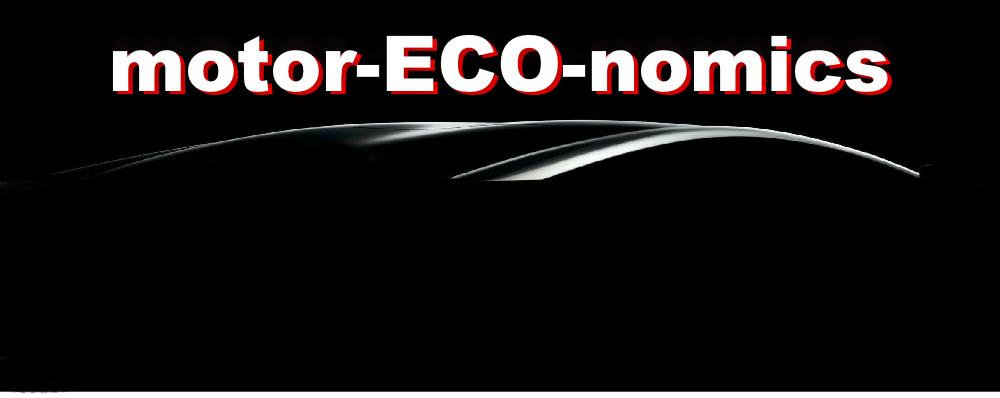History and Ownership
The core of the Stellantis empire has to be founded by the Peugeot family, now diluted with a wide range of brand acquisitions. Peugeot as a brand-name had been around for over 200 years starting as humble blacksmiths and diversifying over time into a range of domestic products including motor scooters and dining-table condiments - which are still manufactured elsewhere under licence from Peugeot. A significant turning point was into road transport with the manufacture of Peugeot bicycles and motor-assisted bicycles (mopeds), then the manufacture and sale of cars, small and larger commercial vehicles which continue to this day. While Peugeot is based in France it manufactures increasingly overseas - from Germany to China with many stops in between.
Notably, Peugeot family members have featured in the management of the company since inception, a fact which has irked certain groups of individuals especially in the French Government over the years - the French Government interfering with the financial balance of the company by insisting upon changes of strategy - for instance the bankrupted Citroen brand was forcibly backed into the Peugeot Motor Company to relieve French politicians from decision-making about the company - echoes of the UK there! In recent years following a serious profitability/cash crisis, the Chinese Dong-Feng Corporation and French government funds and shareholdings were introduced, seriously diluting the Peugeot family influence. This quasi-political manoeuvring uncomfortably mirrors that interference undergone by the ‘British Leyland Motor Corporation’ and predecessors experienced from the UK government in the 1940’s and onwards until their demise.
Fortunately, some degree of stability now reigns within Stellantis and it is hoped this will be permanent. Governments and their politicians need to recognise that interfering in corporations is way outside their areas of expertise and will only have negative results. A political and economic interference concomitant with Brexit, for which Peugeot remains coldly and fully prepared to cut off the sick man of Europe. Rumours have it (November 2019) that the joint venture with Dong-Feng in China has hit very stormy waters and this may be just one of the side effects of the suspected world-wide recession triggered by ‘Mouth-and-Trousers-Man’. As Tonto would have said, “white man speak with forked tongue”.
Current major car/LCV brands held by Stellantis include Citroen, DS, Vauxhall-Opel (Vopel) and FCA (Fiat-Chrysler Group billed as ‘merged’ ) following the unfortunate and early demise of The excessively dynamic Sergio Marchionne. Also Jaguar-Land Rover has often been rumoured as a possible acquisition target. However, it is difficult to envisage just how far management may need to be stretched and diluted to span this wide collection of brands - let alone finance them adequately. To underpin this, industry observers still have some difficulty in understanding significant financial benefits from the purchase of Vopel from General Motors in the short and medium term, and are thus still struggling with the efficacy of the FCA acquisition. Vopel would bring additional under-used production capacity across Europe and Asia, suggesting Peugeot may have plans to in due course consolidate production into the more responsive and cost-efficient plants, something they have been attempting in recent years. The role of FCA is even more difficult to understand in the short term, particularly bearing in mind the direct competition between brands/models - for instance Alfa Romeo versus DS - ignoring any quality/longevity comparisons when marketing these brands, but this is generally the habit of consumers.
CEO (Carlos Tavares) was parachuted into the Peugeot Group in 2014 following the latest French re-structuring and re-organisation of the Citroen-Peugeot company referred to above. Tavares has supervised sweeping changes to model line-up while cutting less profitable models. Initially the loss-leaders were axed - primarily the much-loved RCZ, 208cc and 308cc models which despite being sub-contracted to manufacture by Magna in Austria, sold at a (debateable) loss were giving the Peugeot brand in particular, a much-needed ‘halo’ enhancement in what was then a somewhat shaky brand reputation. Factory closures have ensued, with manpower slowly being trimmed towards international motor industry standards - yet in parts still limited by stringent French employment protection standards.
The immediate result of ownership changes and cost-cutting was approval by the French Stock Market and together with revaluation of assets and removal of a pile of loan interest, meant a very swift return to operating profitability, and although this is fragile, it may improve despite motor industry and wider economic disruptions. Subsequent performance has bee masked by a succession of brand/manufacturer acquisitions in which a ruthlessly applied rationalisation and dis-investment policy has liberated cash to put into the bottom line of profitability, but of course this cash liberation process cannot be repeated and the medium to long term viability of each brand will need to be addressed very carefully.
The current position is a progressively commonalised car and light commercial vehicle ranges leading to shared design and production costs. Platform-sharing has also been introduced across - and within - the car brands. For instance the large saloon 508 and the Vopel Insignia share some components/assemblies and it may be that this needs close control if distinct brand identities are to be preserved. With their prior experience in differentiation between the Citroen, DS and Peugeot brands, it is to be hoped that visually similar vehicles will not be identifiable across the new brands into the Vopel and FCA ranges.
In July 2019 PSA opted to become a ‘European’ company suffixed ‘Societe Europeane’ -instead of being a French company (SA) to more accurately reflect their now widely spread operations based across Europe - and worldwide. In December 2019, a ‘merger’ has been ratified with FCA and signified by a share expansion and exchange between the two companies.
Brand Nameplates
Citroen - quirkiness explored - bold designs and attractive pricing with suspect Peugeot underpinnings
DS - Premium French design and quality at a post-premium price but not achieving any sales penetration
Peugeot - solid styling leadership with very patchy longevity of power trains, some innovation
Vauxhall-Opel - appealing to VFM private buyers and especially the fleet sector
Alfa Romeo - THE brand for enthusiasts - not appealing to the mainstream motorist despite great current offer
Abarth - Effective engineering, superb performance in the old school for a discriminating niche of enthusiasts
Fiat - Continuing in doldrums and fulfilling patriotic needs of Italian consumers with little international penetration
Jeep, Dodge and Chrysler - appealing to somebody, somewhere who wants a typically American brand
Distribution Networks - UK and Europe
Manufacturer/brand operations are mainly keeping their physical distance from retailers. A number of ‘direct sales’ sites proliferate via the internet including social media in which finance schemes and ‘special editions’ are push-sold. Internet sales are usually physically channelled through local dealers after the transaction price is virtually set in stone - thus insulating the group from the vagaries of used car trading and the retail customer who is still typically regarded as ‘dirty’ despite Stellantis talking ‘at’ them via social media.
Stellantis has now done what they call ‘re-structuring’ of their various franchise networks to permit direct sales to customers, but still using dealer outlets where they can to make selling to the consumer a reality. This is resulting in the better dealers defecting to their competitors. In 2024 this has enabled many embryo Chinese manufacturers to gain a firm foothold in Europe with very price-competitive products and thus eat into Stellantis’ market share.
At retailer level, there is a complex and uneasy mix of competing solus dealers, small dealer groups and Succursales (PSA - owned retail outlets operating ambivalently towards inde dealer-owners within their own networks and using pricing techniques unavailable to those struggling inde retailers). Service points would appear to be a logical and simple customer convenience as gin-palace retail showrooms become unviable, but do not appear to be supported in the UK despite attrition of full-service retail dealers. Despite this, factory-promoted service-only outlets operate in the French home market and across mainland Europe.
2024 changes to the Block Exemption Regulation has given new powers for unfranchised car repairers to freely access manufacturer technical data to enable them to service and repair all makes of car, thus enabling more realistic pricing for customer repairs. It is suspected that franchised car dealers (now oftewn refered to as ‘agents’) will experience lower service volumes and - newly having to compete on price - will find formally representing car manufacturers for after-sales will be unviable. Whether their businesses can be reformed toxontinue to exist, is currently open to debate.
In the UK, retailer standards of an expansive and traditional character have previously been vigorously enforced. This is now totally out of step with current economics and consumer buying behaviour. There is already dealer attrition in important markets, leaving total market share withering on the vine. Buyers can now carefully consider the complexity/time/cost of reaching franchised service points and the frequency required, which may now be somewhat more distant than average.
Customer Experience
The following opinions are taken from analysis of owner interviews, our own Omnibus Survey data, discussions with independent service shops and dealer groups, thus generalised trends are discernable from the data. They should still not however be considered to be exhaustive or totally reliable, based as they generally are, upon inexpert consumer opinion.
Retail coverage of dealerships along with suspect quality has led to too many retail and fleet customer defections from the mainstream Peugeot and Citroen brands. This is coupled with real and persisting rumours of product quality and reliability concerns. This is particularly focused upon unreliable electronics and a range of in-house engines co-designed alternately with Ford and BMW, which operate at very high specific outputs with correspondingly low longevity. Through the now-expired Ford collaboration (Gemini) customer engines are (or were) supplied in significant volumes to Mazda, Mitsubishi, Tata and Geely group brands - all of which have now made alternative arrangements following price and service issues, compounded by brand ownership changes.
There are clear signs that following a concerted programme within the whole Groupe Peugeot, that product design, specification and build quality is leading to highly desirable and reliable vehicles within their respective markets, although in typical ‘Brit’ fashion, pub talk says any French product is to be avoided at all costs. Brits just LOVE pub talk, examples European Union, ‘foreigners’ !












